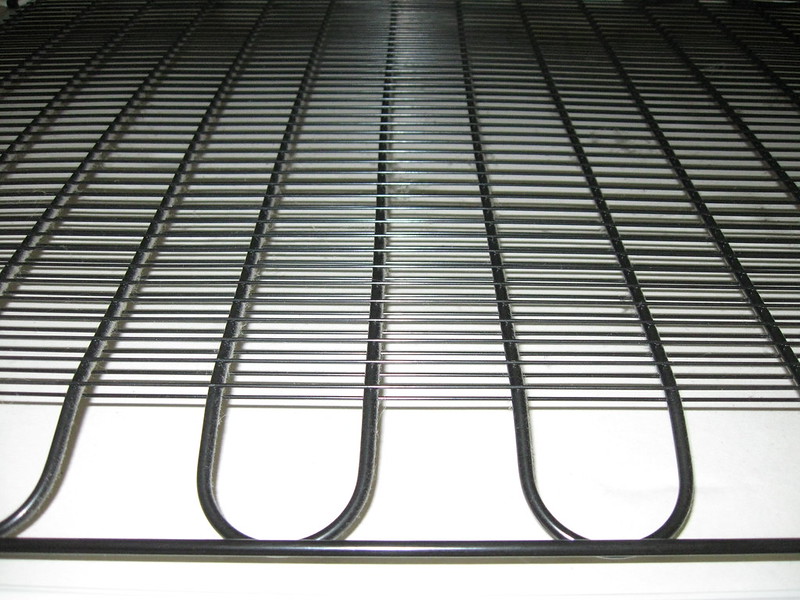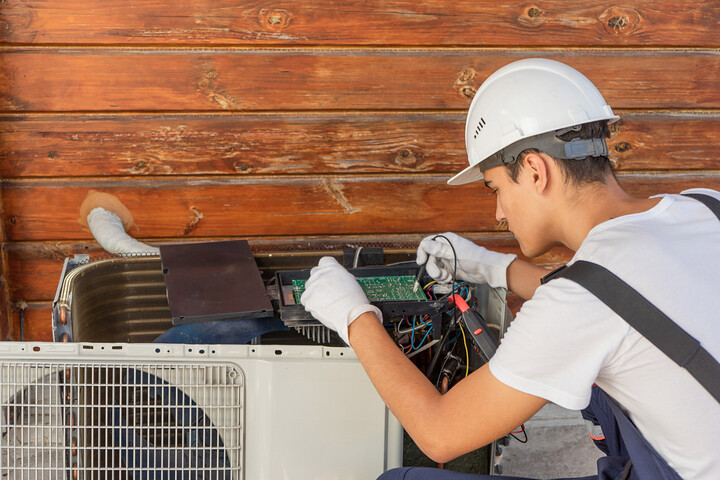Did you know that a freon leak in your refrigerator can be hazardous to your health? In this blog post, we discuss signs of a fridge freon leak and what to do if one is detected.

What is Freon?
Heating and cooling systems use refrigerants such as Freon which is an ozone-depleting chemical. It can also be called R-22 or HCFC-22, which are the names assigned by the U.S. Environmental Protection Agency (EPA). This chemical can be released into the atmosphere through leaks or intentional venting of air conditioners/refrigerators. Freon itself has no odor but it does thin out as time goes on and release gasses that may be noticeable.
Why Freon is Dangerous?
Recent studies show that a small leak in your refrigerator can be hazardous to you and your family. While processing, freon leaks create dangerous chemicals such as chloroform
Freon is a colorless and odorless substance which makes it impossible to detect in your home, that’s why you may not know that there is a leak until the concentration has become harmful or even fatal. According to The EPA (Environmental Protection Agency),
As little as 100 grams [of freon] could kill everyone in an average size house.
How to Identify Freon Leaking?

So, how do you know if your refrigerator is leaking freon? There are some signs that may indicate a refrigerant leak in the system of your appliance:
- Strange odors coming from fridge.
If you are experiencing strange odors coming from your refrigerator or any other appliance, it could be a sign of freon leakage. The odor of the refrigerants, particularly Freon, is musty and distasteful.
- Moreover, leaking gas could provide a metallic taste in your food stored near the suspected leak source.
Freon doesn’t have a smell or even taste by himself, but it can make food in your fridge start to taste bad. When food begins to spoil and take on unpleasant flavors due to refrigerant leaks, you’ll want to identify where the freon might be coming from as soon as possible.
- Decreased cooling efficiency and increased energy usage over time.
When freon leaks, the unit will not be able to keep your food at a cold enough temperature which could lead to spoilage or extra expenses on electric bills if you are using more power trying to maintain its original coolness levels. If there is leakage in some units the fan may start running constantly because it’s sensing that something isn’t right with the system of refrigeration thus draining even more energy from your home appliances. There are ways of detecting Freon leakages whether they’re small or large, but first you must know what signs indicate that this kind of gas has leaked into your appliance.

- Odorless white smoke coming out vents or furnace.
If you notice that your heating or cooling unit is smoking and you don’t smell anything then it’s most likely a sign of freon leakage due to an open pipe, loose connection, worn compressor fan belts, damaged evaporator coils etc.
- Sickness because of Freon. If one has been exposed to Freon for a long time he or she could be injured by it. Gas could cause health problems such as dizziness or fainting spells due to carbon monoxide poisoning. These symptoms need immediate attention so call a professional if you find yourself affected by freon leaks.
Stay Safe!
The good news is that you can protect yourself from Freon leaks. If you suspect some, call professional fridge repairs for immediate technical assistance. You can also find more information on the EPA website about how to identify Freon leaks at home and what you should do if you detect one. We don’t want anyone getting sick because of these gas leaks! Stay safe out there by acting now before it’s too late.
